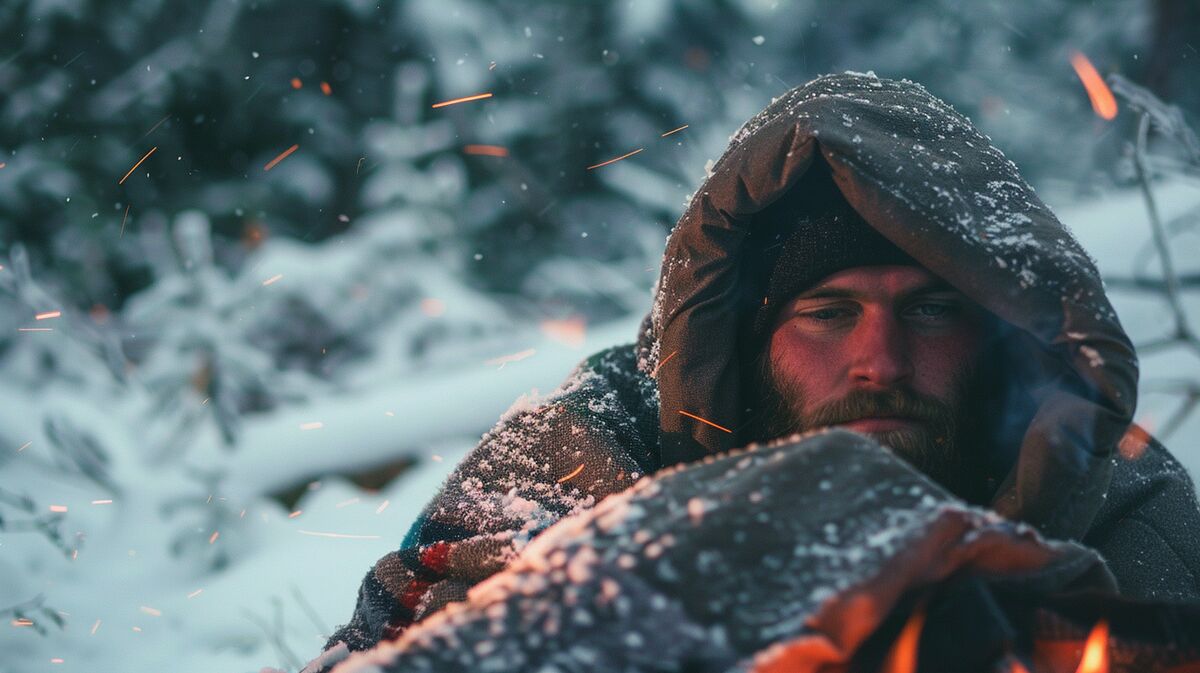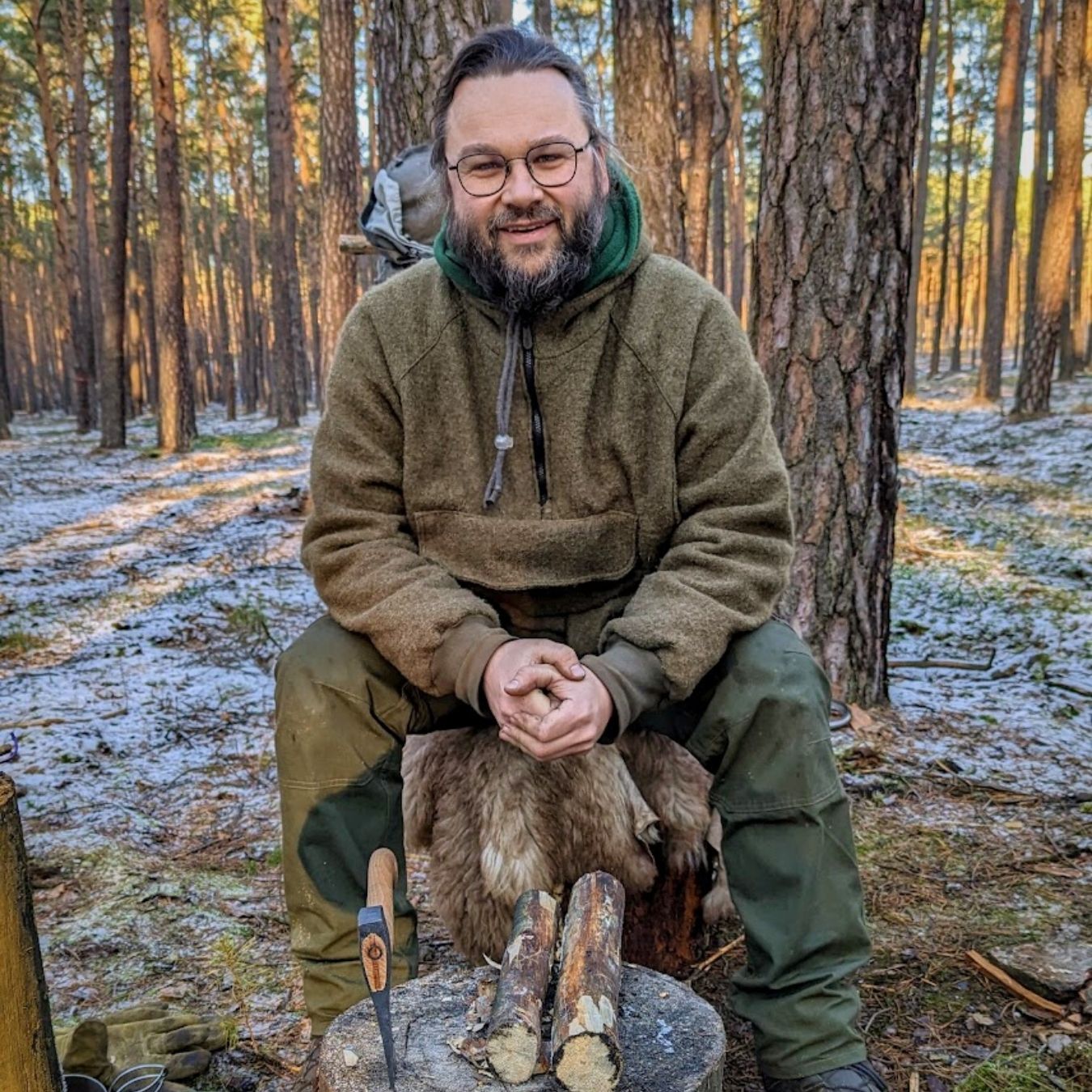
heat loss
Substantive/Noun
Meaning
Heat loss refers to the body's reduction in temperature due to external factors, especially in outdoor environments. It's a critical concept in survival, bushcraft, and outdoor activities because maintaining core body temperature is essential for staying alive and functional.
Heat can be lost through various processes like conduction, convection, radiation, and evaporation. In the wild, you combat heat loss by using insulation, shelter, fire, and proper clothing to retain warmth. Understanding and managing heat loss is vital for preventing hypothermia and ensuring a safe outdoor experience.

Examples
„Before you settle in for the night, make sure to insulate your shelter properly to prevent heat loss.“
„Wearing a hat is essential in cold environments since a significant amount of heat loss occurs through the head.“
„To reduce heat loss, always use a sleeping pad when camping in the winter.“
„Double-glazing your windows at home can be an effective way to minimize heat loss.“
„When you're in a survival situation, remember that staying dry is crucial to prevent heat loss and hypothermia.“
Origin
The term "heat loss" originates from the field of thermodynamics, which is the science of energy transfer. Its roots are deeply embedded in physics, where it describes the process of heat being transferred from one object or system to another, typically from a warmer object to a cooler one.
The concept has evolved over time, especially with advancements in understanding the human body's thermoregulation and the development of materials and techniques to mitigate heat loss in various environments, including outdoor and survival situations.
Synonyms
Thermal loss, Body heat dissipation, Warmth escape, Temperature drop, Heat leakage, Heat dissipation, Heat depletion, Thermal leakage
Antonyms
Heat gain, Insulation, Warmth retention, Thermal increase, Heat absorption, Energy conservation, Temperature rise, Heat buildup
Relatives
Hypothermia, Insulation, Conduction, Convection, Radiation, Thermal regulation, Evaporative cooling, Metabolism
Historical and cultural importance
When we talk about heat loss in the context of survival, we're tapping into a fundamental challenge that has shaped human history. Our ancestors had to learn how to manage heat loss to survive in diverse environments, from icy tundras to windy plains.
Throughout different cultures, methods to combat heat loss have been developed and refined. For instance, the Inuit created the igloo, an ingenious structure that minimizes heat loss, while Bedouins used loose-fitting robes to protect against the heat of the desert and retain body warmth during cold nights.
Heat loss isn't just a matter of comfort; it's a critical survival issue. Historical explorers and soldiers often faced the dangers of hypothermia, a direct result of excessive heat loss, which could lead to fatal outcomes.
In the realm of bushcraft and survival, understanding and preventing heat loss is a skill passed down through generations. It's a testament to human ingenuity and adaptability, showcasing our ability to thrive in even the harshest of conditions by mastering our body's response to the cold.
More information about the term heat loss
Understanding Heat Loss
When you're out in the wild, understanding heat loss is crucial for survival. Your body constantly generates heat, but in cold environments, it's a battle to maintain a comfortable core temperature. Heat loss refers to the transfer of body heat to the surrounding environment, and it can happen in several ways.
Mechanisms of Heat Loss
Conduction
Conduction is the process where heat moves from your body to something you're in direct contact with. Imagine sitting on a cold rock; the heat from your body warms the rock, but in turn, the cold from the rock cools you down. This is why insulation from the ground is so important when you're setting up camp.
Convection
Convection occurs when heat is carried away from your body by moving air or water. Think of a windy day or swimming in a cold lake. The movement increases the rate at which heat is lost, which is why wind chill can be so dangerous and why you need to dry off quickly after getting wet.
Radiation
Radiation is the loss of heat in the form of infrared energy. Your body naturally radiates heat into the environment, and without proper insulation, you'll cool down quickly. This is most noticeable on clear, cold nights when there's no cloud cover to reflect your body's heat back to you.
Evaporation
Evaporation is the process of losing heat through the conversion of water to vapor. When you sweat or your clothes are wet, evaporation will cool you down as the moisture leaves your skin or clothing. It's a double-edged sword because while sweating cools you in hot weather, it can chill you dangerously in the cold.
Preventing Heat Loss
Clothing and Layering
The right clothing is your first defense against heat loss. Layering allows you to adjust your insulation based on your activity level and the weather. A moisture-wicking base layer, an insulating middle layer, and a windproof, waterproof outer layer are the trifecta of outdoor clothing.
Shelter and Fire
Creating a shelter protects you from the elements and reduces heat loss through convection and radiation. A fire not only provides warmth but also helps to dry out wet clothing, combating heat loss through evaporation and conduction.
Nutrition and Hydration
Staying well-fed and hydrated is essential for maintaining your body's heat. Food is the fuel that keeps your internal furnace burning, and water is necessary for efficient metabolism. A hot meal and a warm drink can do wonders for your body temperature in the cold.
Recognizing the Risks
Understanding the signs of hypothermia, which is the dangerous drop in body temperature due to heat loss, can save your life. Shivering, confusion, and fatigue are early warnings. If you or someone with you starts showing these symptoms, it's time to take immediate action to warm up.
Heat loss in the wilderness is a serious concern, but with the right knowledge and preparation, you can stay warm and safe. Always respect the power of nature and remember that preventing heat loss is key to your survival.
Back to overview

